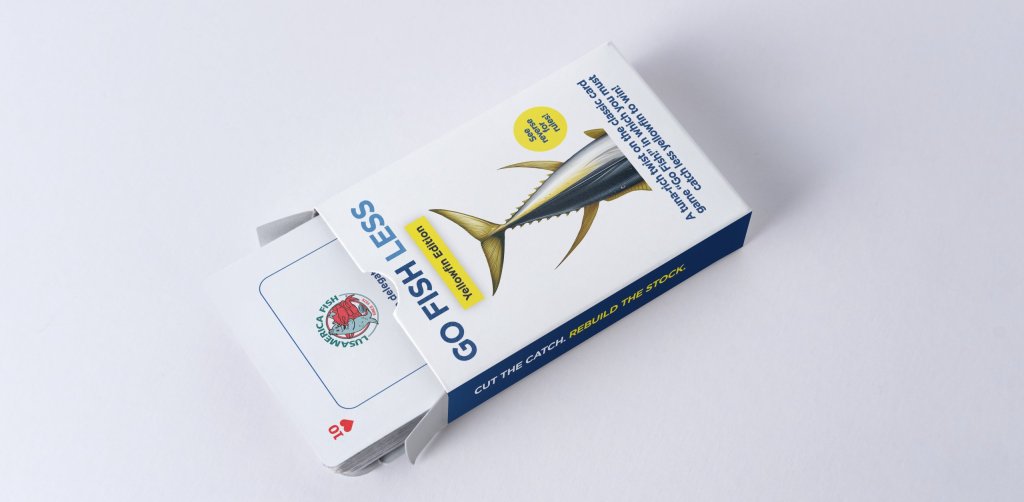
BANGKOK, Monday 13th May – The Global Tuna Alliance (GTA) is attending the opening day of the 28th Indian Ocean Tuna Committee (IOTC) meeting in Bangkok, urging delegates to cooperate on much-needed reductions to the yellowfin catch. It’s an indispensable opportunity to act before 2025, which would mark ten years since the stock was first declared overfished.
The GTA – an independent, pre-competitive association of retailers and seafood supply chain companies – is making an urgent request to IOTC members. Based on alarming scientific evidence, delegates must agree to cut the yellowfin catch by 30% in order to rebuild the stock. Failure to do so risks a full collapse of the stock, with major ecological and societal consequences, particularly on coastal states in the Indian Ocean where thousands of livelihoods depend on tuna.
“These IOTC meetings are where the future of tuna in the Indian Ocean is decided,” said Daniel Sudabby, the GTA’s Executive Director, “so it is essential that the voice of our Partners, representing a huge swath of the tuna supply chain, are heard and acted upon.
“All of our 52 Partners share grave concerns about overfishing and unsustainable practices – concerns echoed everywhere by the scientific community, conservationists and global consumers. That’s why we’re collaborating on a joint campaign with the WWF, unifying the global voice of the tuna market and the world’s most recognised conservation organisation.”
“While we know that some fishing nations have attempted to cut their catch individually, it’s not nearly enough – not according to the IOTC’s own Scientific Committee.” said Kerrie Robertson, the GTA’s Advocacy lead, who is spearheading their efforts. ”The IOTC members simply cannot continue to play games with the future of yellowfin. The longer this takes, the worse the cuts will be for everyone, which is particularly detrimental for the countries that depend heavily on this amazing resource.”
To engage decision-makers more creatively in its campaign, the GTA developed a twist on the classic card game ‘Go Fish’, rebranded as ‘Go Fish Less: Yellowfin Edition’. These GTA-branded decks of cards, communicating the key campaign messages from our GTA Partners, have been given to each IOTC delegation in Bangkok. The back of the pack lays out the “rules” of the game in three parts: to break through the deadlock on catch allocations and strike a deal to cut the overall catch, to make a plan to rebuild the stock in two generations, and to act now before bigger cuts are necessary.
Each of the 52 cards inside the deck features a market statement from a GTA partner, calling for the urgent reduction of the Indian Ocean yellowfin tuna catch, such as this appeal from Woolworths, South Africa:
“The overfishing of yellowfin tuna in the Indian Ocean is a profound, systemic challenge, not in the future, but right here, right now and taking action to rebuild the yellowfin tuna stock cannot wait.”
Tesco – one of the most popular supermarket chains in the United Kingdom said in their statement:
“Tesco has taken a definitive stance by ceasing to source Indian Ocean yellowfin tuna, recognising the unsustainable pressure on this species.
“We strongly support the adoption of a resolution by the Indian Ocean Tuna Commission to cut yellowfin catches by 30% and to put in place a recovery plan that promises a sustainable turnaround within two generations.
“We continue to advocate for effective, science-based management of tuna stocks, crucial for their recovery.”
Delegates can also find a QR code on one of the cards, linking to the GTA’s website where more information about the campaign can be found.
“In short, this is us, the 52 Partners of the GTA, imploring the IOTC to find a fair solution as quickly as possible – a solution that aligns with their obligations under international law and properly listens to expert and independent scientific counsel,” adds Sudabby. “If the Commission fails to achieve that, it must – at the very least and without delay – adopt a roadmap detailing the steps to reach such an agreement by May 2025.”